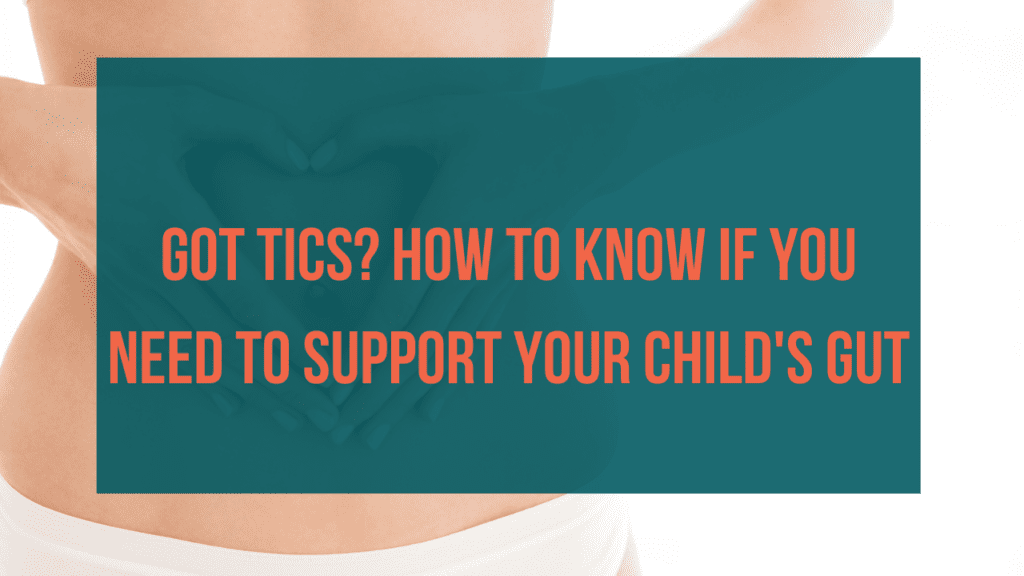If you tried magnesium and B6 for tics with no success it’s time to learn the symptoms that may indicate your child has a gut health problem.
It’s not uncommon for children to have tics. For example, they may blink repeatedly or make a clicking sound with their mouth. But if you notice your child is scratching themselves excessively, has chronic stomachaches, gas, bloating, mood swings or is having trouble sleeping, it could be that the gut health of your little one needs some support.
Tics result when activity in certain parts of the brain becomes unregulated which leads to excessive movement or vocalization. Tic disorders have many different causes – including genetics, trauma, and infection – but they share common symptoms such as eye blinking, grimacing face, uncontrollable movements and vocal noises.
The gut and the brain are connected and this connection can have an impact on your child’s tics. Let’s start with the Vagus nerve which connects the gut and brain. . It controls the release of hormones including serotonin, which reduces inflammation and is essential for healthy gut function. Toxicity in the body can damage this nerve, which can impact brain function and increase Tics. Toxins that are released by harmful bacteria such as yeast, fungus and parasites can contribute to inflammation that can degrade the Vagus nerve. Toxins from medications, artificial sweeteners, and food additives also contribute to this problem.
Gut health includes the health of your microbiome (gut flora or gut bugs). Gut bugs control several bodily functions including digestion, immunity, and central nervous system function (including tic disorders). Information from thousands of studies shows how important it is to support healthy gut microbiota (gut bugs) to improve immune, neurological and digestive issues for children with Tics.
Some of the additional symptoms of poor gut health include attention deficit hyperactivity disorder (ADHD), OCD, mood disorders, meltdowns or sensory issues. As I mentioned early sleep issues, stomach aches, constipation or diarrhea, rashes, hives, and other skin issues can also point towards problems in the gut. It can also take a lot of personal energy to cope with pervasive tic symptoms and the feeling that one cannot control them. This can actually cause our children to use more nutrients leading to nutrient deficiency. If your child already has gut problems they may not be absorbing enough nutrients in the first place.
I am sure you are wondering what steps do I need to take to support my child’s gut?
– Tidy up the gut by eating a diet rich in fiber (from organic veggies), proteins, and healthy fats.
– Avoid dairy produce, processed foods, refined sugar, gluten, and additives.
– Take a high-quality probiotic supplement.
AND #1 test, don’t guess. If you truly want to know what is going on down there… stool pathogen testing is the way to go. It will give you the ability to assess good and bad bacteria, find sources of inflammation, uncover food sensitivities, digestion efficiency, and look for pathogens and opportunistic bacteria. Gi Map testing is my go-to test for stool pathogens.
Are you ready to get your hands on the right lab tests to support your child’s tics and gut? Grab a Free Deep Dive session here!

